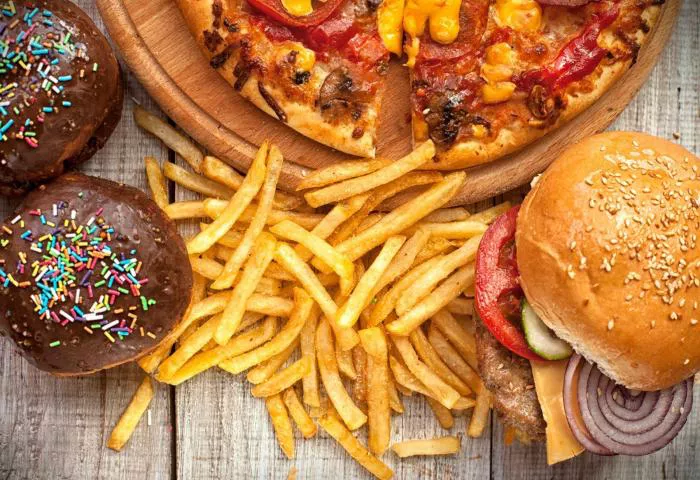Breastfeeding is a crucial part of infant nutrition. It provides essential nutrients and antibodies to newborns. Many new mothers wonder about the impact of their diet on breast milk. One common concern is the consumption of junk food. This article explores whether junk food affects breast milk quality and the overall health of the breastfeeding mother and her baby.
Understanding Breast Milk Composition
Breast milk is a complex fluid. It contains proteins, fats, carbohydrates, vitamins, and minerals. These components are vital for a baby’s growth and development. The composition of breast milk can change based on the mother’s diet. Therefore, what a mother eats can influence the nutrients her baby receives.
The Impact of Junk Food on Maternal Health
Junk food often refers to processed foods high in sugar, salt, and unhealthy fats. Common examples include chips, sugary snacks, and fast food. Regular consumption of junk food can lead to several health issues in mothers, including:
Weight Gain: Junk food is calorie-dense and lacks nutritional value. This can lead to weight gain and obesity.
Nutrient Deficiencies: A diet high in junk food can result in deficiencies of essential nutrients. This affects not only the mother but also the quality of breast milk.
Increased Risk of Chronic Diseases: Consuming junk food can increase the risk of conditions like diabetes and heart disease.
Nutritional Quality of Breast Milk
Research shows that a mother’s diet can affect the nutritional quality of her breast milk. Junk food, lacking in essential nutrients, can lead to lower quality milk. Studies suggest that the fatty acid profile in breast milk changes based on the mother’s dietary fat intake. A diet high in unhealthy fats can reduce the beneficial fats in breast milk.
Fatty Acids in Breast Milk
Breast milk contains both saturated and unsaturated fatty acids. Unsaturated fats are healthy and beneficial for the baby’s brain development. A diet high in junk food may lead to an imbalance in these fats. This can result in lower levels of essential fatty acids, which are crucial for a baby’s growth.
Vitamins and Minerals
Vitamins and minerals in breast milk also depend on the mother’s diet. A diet rich in fruits, vegetables, whole grains, and lean proteins provides essential vitamins like A, C, D, and B vitamins. Junk food often lacks these nutrients, which can result in breast milk that is low in vitamins. This deficiency may impact the baby’s immune system and overall health.
Effects on Baby’s Health
The quality of breast milk can significantly influence a baby’s health. Babies receive not only nutrients but also antibodies through breast milk. If a mother consumes junk food regularly, her milk may not provide adequate nutrition. Possible effects on the baby include:
Poor Growth: Inadequate nutrients can lead to poor growth and development.
Weakened Immune System: Low levels of essential vitamins may affect the baby’s immune system, making them more susceptible to infections.
Altered Taste Preferences: Babies are exposed to flavors in breast milk. A diet high in junk food may lead to a preference for unhealthy foods later in life.
Balancing Junk Food in a Diet
While it is not necessary to completely eliminate junk food from a mother’s diet, moderation is key. It is possible to enjoy treats without compromising health. Here are some tips for balancing junk food consumption:
Choose Healthier Options: Opt for healthier versions of snacks. For example, choose air-popped popcorn instead of chips.
Practice Portion Control: If indulging in junk food, keep portions small. This helps manage calorie intake without overindulging.
Focus on Nutrition: Prioritize nutritious foods in daily meals. Include fruits, vegetables, whole grains, and lean proteins. These foods provide essential nutrients for both mother and baby.
Stay Hydrated: Drink plenty of water. Hydration is vital for breast milk production and overall health.
Listening to Your Body
Breastfeeding mothers should listen to their bodies. Cravings for junk food may arise, especially during late-night feedings. It’s important to satisfy cravings without overindulging. Pay attention to how different foods make you feel. Some mothers may notice that certain foods affect their baby’s behavior or digestion. Keeping a food diary can help identify any patterns.
Seeking Professional Advice
If you have concerns about your diet and breast milk, consult a healthcare professional. A registered dietitian can provide personalized advice. They can help create a balanced meal plan that supports both maternal and infant health.
Conclusion
In summary, junk food can impact breast milk quality and, consequently, a baby’s health. While occasional treats are fine, a balanced and nutritious diet is crucial for breastfeeding mothers. Prioritizing whole foods will ensure that both mother and baby receive the essential nutrients they need. By being mindful of diet and making healthier choices, mothers can support their breastfeeding journey and promote their baby’s well-being.
Related topics:


